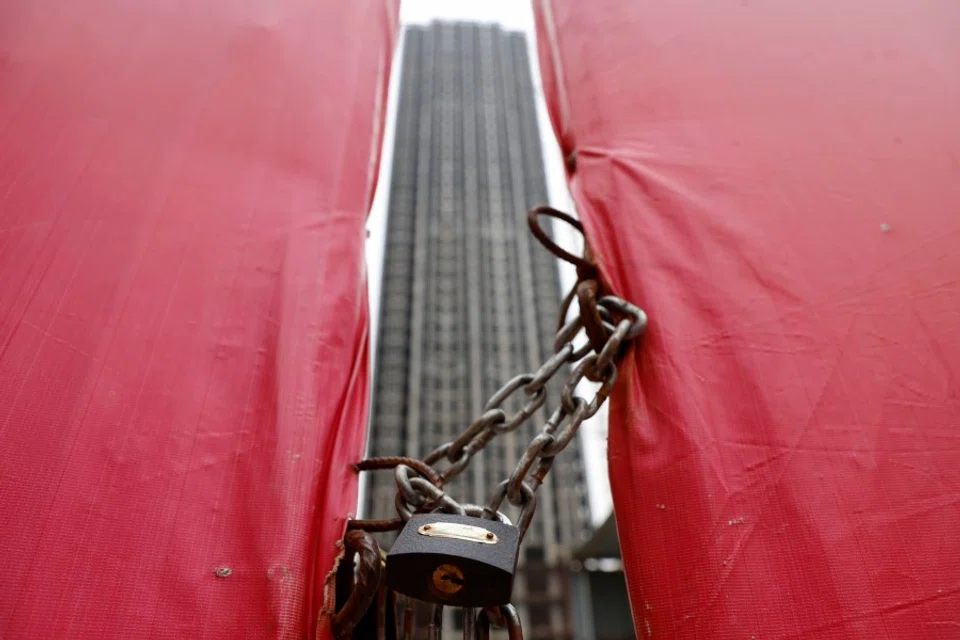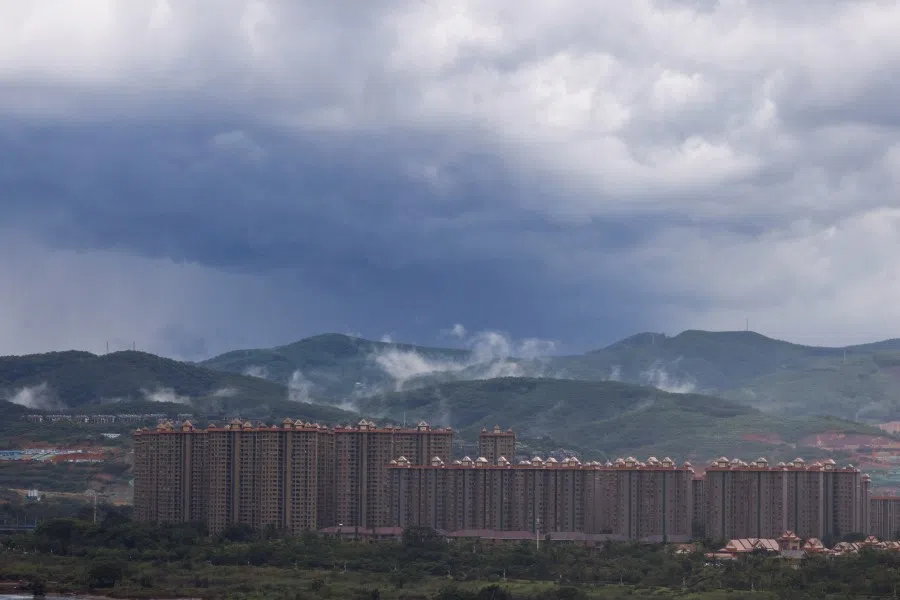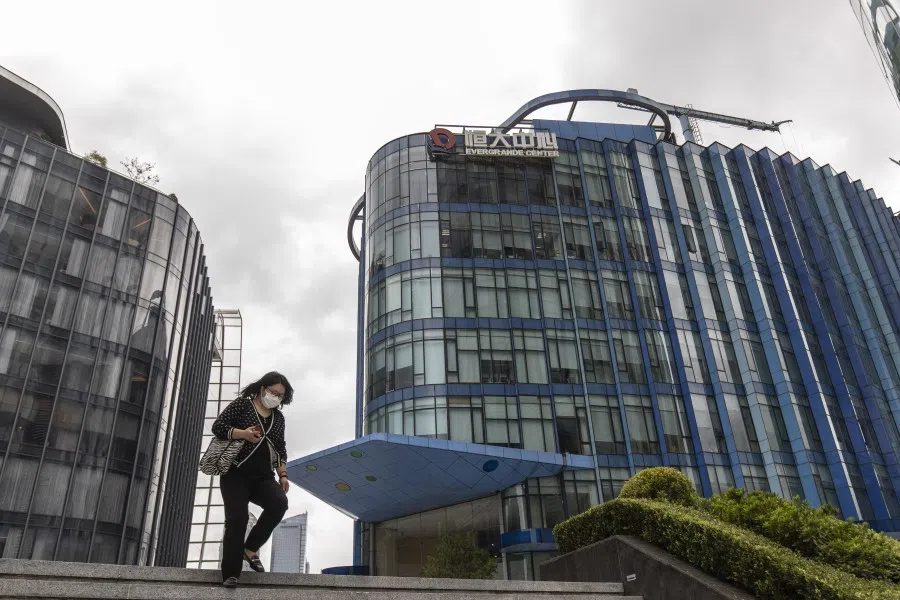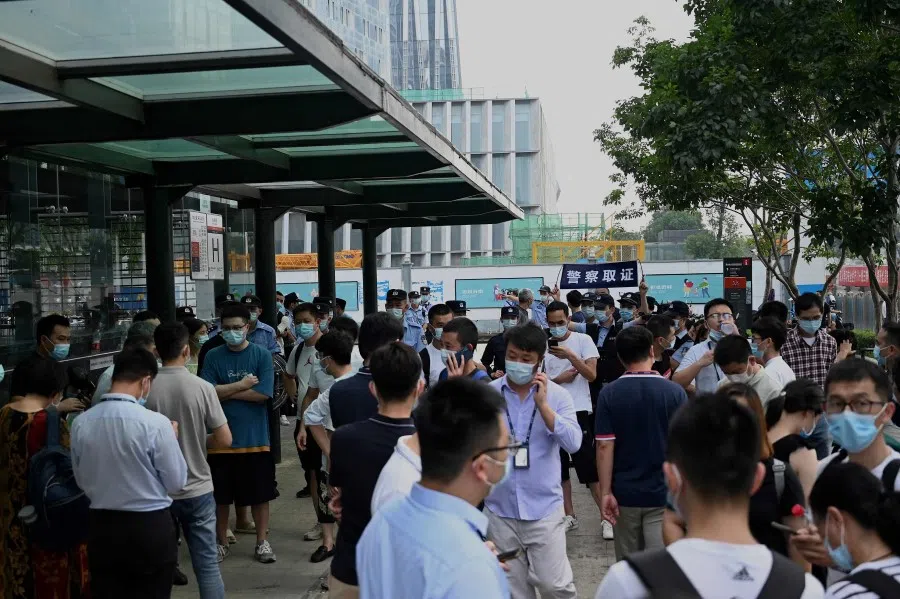Property conundrum: Chinese society disagrees over how much property prices should fall
Even as the Chinese government tries to ease property prices, some local governments are worried that prices might fall too much, triggering social effects. As a stop-gap measure, they are rolling out regulations to "limit the drop", frustrating those who are waiting to buy a house. Zaobao correspondent Yang Danxu looks at how the authorities plan to manage a property bubble that mustn't burst.

"They would rather throw the bread away than let the poor eat it."
When talking about property prices, a Chinese friend saving up and waiting to buy a home was indignant. Just as there are finally signs of the market cooling, there is talk that the local governments in some cities want to limit the drop in prices. My friend said angrily: "Now we finally know who to blame for not being able to afford a home."
This year, China's property market has indeed been quite surreal. Early this year, some places saw a wave of ballots for new housing, with people "fighting" for properties in some popular cities; crowds of people jostled for hot properties, with tens of thousands of people balloting to buy housing.
Soon after, regulation measures got increasingly harsh - limits on sales and purchases, plugging the loophole of divorcing to buy housing, tightening property loans, clamping down on operating loans flowing into the property market. Hyped-up prices in school districts were also brought under control, and there were reference prices for resale housing.
Pulling the brakes on falling property prices
However, even as high-demand cities are still cooling the market, some governments of third- and fourth-tier cities have recently started to worry that property prices are falling too fast, and are coming up with mandates to "limit the drop".
According to Bloomberg, since late July, places like Heze in Shandong, Yueyang in Hunan, Kunming in Yunnan, Tangshan in Hebei, Shenyang in Liaoning, Jiangyin in Jiangsu, Zhuzhou in Hunan have launched policies or held talks with developers about price reduction and other issues.
In Kunming, between May and August, at least 30 developments have launched special-price units, with some prices plunging as much as 60%, from 16,000 RMB per square metre down to 10,000 RMB.

In the case of Yueyang, the local government last month mandated that residential housing prices cannot be higher than the reference price, or lower than 85% of the reference price. The "mandate" in Jiangyin is to disallow low-price sales and price wars, while Zhuzhou - the latest to join the ranks - has held talks with property developers that have drastically dropped prices to get them to immediately halt irregular sales and remove all property information that is suspected of being sold at low prices.
How much have property prices fallen in these places with such mandates? According to reports, a new development in Shenbei New Area in Shenyang launched special-price units in August, with the price lowered from 10,000 RMB (S$2,080) per square metre to about 8,000 RMB. In Kunming, between May and August, at least 30 developments have launched special-price units, with some prices plunging as much as 60%, from 16,000 RMB per square metre down to 10,000 RMB.
News of such mandates has disheartened some people waiting for property prices to go down. One netizen said: "Only allowing prices to go up but not down; looks like the safest investment is property." On the other hand, those who have already bought property are strongly supportive of the measures to limit the drop, because "it is hard-earned money that drops".
Such mandates show that the brakes are really being pulled on China's property market. An industry player said there have been frequent regulatory measures from the authorities this year and conditions in the market for destocking are getting worse, while tighter loan regulations are also putting property companies in financial difficulties. Under the pressure of recouping funds, some property companies have no choice but to engage in price wars.

Fall of Evergrande
No discussion of the operating pressures faced by property companies would be complete without mentioning a recent major incident in China's property sector: the Evergrande Group debt crisis.
This former star in the property sector is now deep in debt and on the verge of bankruptcy. It owes 2 trillion RMB, and there is a growing risk of its subsidiary Evergrande Wealth Management collapsing. The company's headquarters in Shenzhen was thrown into chaos on 13 September when investors showed up at its doors, demanding payment.
Evergrande's reputation and influence make this crisis particularly prominent. Some analyses raise the concern that if Evergrande collapses, it may result in shockwaves and become a "grey rhino" - a serious and probable but overlooked threat - for China's financial system. However, Evergrande is not the only property company in difficulties. According to China's Time Weekly, as of 5 September this year, 274 developers in China have declared bankruptcy - companies are closing down at an average of almost one a day.
However, now that property prices have risen to today's levels, it is also true that they cannot fall; if they do fall quickly, there are many people who will not be able to take it and it will likewise spark off various social issues.
Sudden fall in property prices will trigger social issues
Given the current situation of China's property market, there is no more room for property prices to go up. Rising property prices increase the risk of a growing property bubble, and it is time for adjustments. However, now that property prices have risen to today's levels, it is also true that they cannot fall; if they do fall quickly, there are many people who will not be able to take it and it will likewise spark off various social issues.

China's household wealth is tightly bound with property - 70% of people's wealth is property. People work hard to earn money to buy a home, and no one would want its worth to suddenly shrink. If property prices drop too quickly, droves of investors may not be able to finance their loans, which would impact the financial system. China's investors have also been pampered by property trends. Previously, when prices of new developments fell, property owners would launch protests against developers to safeguard their interests, with occasional unruly incidents of holding banners and trashing sales venues.
...companies are maliciously lowering prices and halting productivity, and playing the victim to try and pressure the government into relaxing its policies.
When property prices fall, local governments will also get uneasy. The concern is not just about a lower income from land sales that will affect fiscal revenue, but that property developers selling housing at discounted prices could lead to a domino effect of plunging property prices, prompting mass incidents of owners demanding for their rights and creating social panic, which would cause more headaches for local governments.
An industry player revealed in private that recently some property companies have been selling housing at reduced prices and halting projects; besides operating pressures, it is also possible that behind it is a tussle between property companies and policies. The authorities are going hard in regulating the market and forcing property companies to deleverage, but companies are maliciously lowering prices and halting productivity, and playing the victim to try and pressure the government into relaxing its policies.
For a stable society, the property market has to be stable. Whether property prices drastically go up or down, it is no good for stability. Policymakers have to deal with the hidden tussling among the various stakeholders and control the rise while limiting the drop - this property bubble is not easy to handle.
Related: The Chinese property bubble that just won't burst | Will clampdowns on China's property sector lead to economic turmoil? | China's rising property prices have serious social consequences | Why China is regulating the property market | Property now a liability for China's middle class | Will the Chinese government save Evergrande?


![[Big read] When the Arctic opens, what happens to Singapore?](https://cassette.sphdigital.com.sg/image/thinkchina/da65edebca34645c711c55e83e9877109b3c53847ebb1305573974651df1d13a)


![[Video] George Yeo: America’s deep pain — and why China won’t colonise](https://cassette.sphdigital.com.sg/image/thinkchina/15083e45d96c12390bdea6af2daf19fd9fcd875aa44a0f92796f34e3dad561cc)